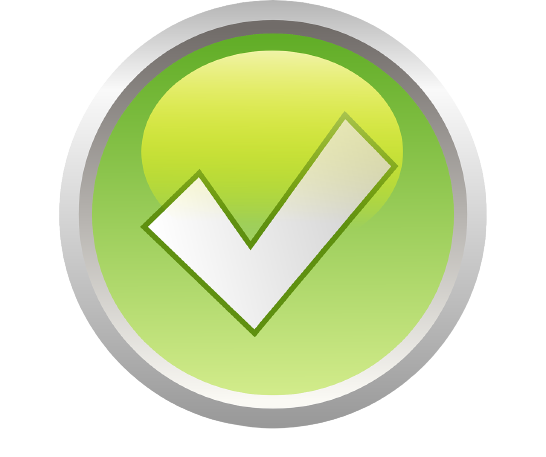Date published: 21/10/2024
Co-ownership fraud

A co-ownership is exposed to various types of risks, such as fires, water damages, theft and acts vandalism; among these risks, one that is often overlooked is fraud. Those capable of committing fraudulent acts can sometimes be unsuspected or seemingly above suspicion; this includes director, co-owner, condo manager, service providers, and third parties. In light of these risks, it is essential to implement control measures and financial vigilance to detect and prevent any attempts at fraud within the co-ownership. Moreover, it is also important to regularly review these measures to ensure their continued effectiveness.
Nature of Fraud
The management of co-ownerships is an area susceptible to various forms of fraud, often centered on financial or accounting manipulations. These dishonest practices can affect not only directors and managers but also, in some cases, co-owners themselves. Let's explore the main types of fraud, the mechanisms behind kickbacks, and the warning signs that may indicate
the presence of such abuses.
- Accounting Fraud and Embezzlement
The most frequent frauds concern accounting management. A dishonest director or manager might embezzle the co-ownership’s funds by falsifying signatures, conducting unjustified bank transactions, or depositing common expenses (condo fees) directly into their own bank account. Sometimes, a manager may transfer money from one co-ownership into another co-ownership’s account, creating financial imbalances.
- Kickbacks and favoritism in contract awards
Fraud in co-ownership management can take the form of commissions paid by service providers to managers or directors in exchange for contract awards. In the absence of strict regulations, these practices sometimes lead managers to favor companies offering lower-quality services just to benefit from a commission. This is particularly common during major work, such as facade renovations or roof replacements, where a manager might select the contractor offering the largest commission, rather than the one providing the best value for money. These behaviors not only increase costs for the co-owners but also result in unsatisfactory outcomes. In the most severe cases, some managers deliberately inflate contract prices to maximize their commissions, always at the expense of the co-owners.
- Involvement of co-owners in fraud
Co-owners themselves may engage in fraudulent practices, such as exaggerating the extent of damage from an incident to obtain a higher insurance payout and fund personal renovations. This type of fraud not only affects the co-ownership but also all the co-owners, as it leads to higher insurance premiums and an increased risk of conflicts.
Warning signs of potential fraud
Several indicators may suggest that fraud is occurring in a co-ownership. Here are the main signs to watch for:
- Lack of financial transparency: The director or manager withholds financial information or delays producing financial reports.
- Suspicious bank transactions: Unusual payments, unexplained transfers, or excessive spending.
- Excessive use of syndicate funds: Frequent withdrawals or high payments to unjustified suppliers.
- Unusual supplier fees: Abnormally high amounts paid to companies rarely or never used by the co-ownership.
- Excessive overtime: The manager charges many overtime hours without clear justification.
- Absence of delegation: The director or manager refuses to delegate certain financial tasks, preferring to control everything personally.
- Lavish lifestyle: A luxurious lifestyle that does not match the individual's declared income.
Limiting fraud risks in co-ownership
The management of co-ownerships is vulnerable to various forms of fraud. To prevent such abuses, it is essential to establish strict protection mechanisms and ensure that managers adhere to professional standards.
- Background checks and account monitoring
It is highly recommended to consult civil and criminal records of prospective managers or directors before any appointment. This helps eliminate candidates with a judicial background incompatible with managing the finances of a co-ownership syndicate.
- The importance of the Ordre des administrateurs agréés du Québec
Additionally, managers who have access to the bank accounts of a syndicate or manage funds from their own account must be members of the Ordre des administrateurs agréés du Québec. Membership in this order ensures that these managers adhere to strict ethical standards, hold professional liability insurance, and use a trust account to manage funds. This professional order plays a key role in protecting co-owners. In addition to the ethical rules imposed on its members, this order has a compensation fund to reimburse any person harmed by a dishonest director. This fund intervenes when funds intended for the co-ownership are diverted for personal use. Membership in this order significantly limits fraud risks for co-ownership syndicates.
The Urgency of a Strict Regulatory Framework
Given the variety of potential frauds, it is urgent to strengthen the regulation of practices in co-ownership management. A stricter regulatory framework, combined with transparency from managers and increased vigilance by co-owners, would better protect syndicates against abuse. By educating co-owners on how to identify warning signs of fraud, we enhance the ability to prevent and detect these malicious practices.
Towards legislative reform in Quebec?
The Quebec legislator has not yet shown clear interest in regulating this essential profession. It is urgent to act to prevent Quebec co-ownership from becoming a breeding ground for fraud, where co-owners could not only lose money but also essential documents such as contracts and management records. Without legal regulation, co-ownership management in Quebec remains vulnerable to abuse.
The Regroupement des gestionnaires et copropriétaires du Québec (RGCQ) in favor of professionalization
The RGCQ has been campaigning for 25 years for the establishment of a legislative framework for the profession of co-ownership manager in order to protect co-owners and ensure the quality of the services offered. The RGCQ proposes the creation of an official register of managers and the establishment of professional certifications to guarantee that only qualified professionals can manage co-ownerships.
 WHAT YOU SHOULD KNOW! Acting proactively is essential to preventing fraud in co-ownership; there are protective mechanisms to avoid it. For instance, it is strongly recommended to consult civil and criminal records of prospective managers or directors, which are available at the courthouse or online. These will reveal their judicial background and any reasons they may have faced legal action.
WHAT YOU SHOULD KNOW! Acting proactively is essential to preventing fraud in co-ownership; there are protective mechanisms to avoid it. For instance, it is strongly recommended to consult civil and criminal records of prospective managers or directors, which are available at the courthouse or online. These will reveal their judicial background and any reasons they may have faced legal action.
 WHAT TO KEEP IN MIND: To avoid potentially damaging consequences from errors committed by co-ownership managers, they should all subscribe to professional liability insurance covering their civil liability.
WHAT TO KEEP IN MIND: To avoid potentially damaging consequences from errors committed by co-ownership managers, they should all subscribe to professional liability insurance covering their civil liability.
 WARNING! The court may, at the request of any interested party, prohibit a person from holding office as a director of a legal person if that person has been found guilty of an indictable offence involving fraud or dishonesty in a matter related to legal persons, from acting as a director of a co-ownership syndicate.
WARNING! The court may, at the request of any interested party, prohibit a person from holding office as a director of a legal person if that person has been found guilty of an indictable offence involving fraud or dishonesty in a matter related to legal persons, from acting as a director of a co-ownership syndicate.
 TEST YOUR KNOWLEDGE! Click here to check your understanding of this topic.
TEST YOUR KNOWLEDGE! Click here to check your understanding of this topic.
Back to the factsheets





